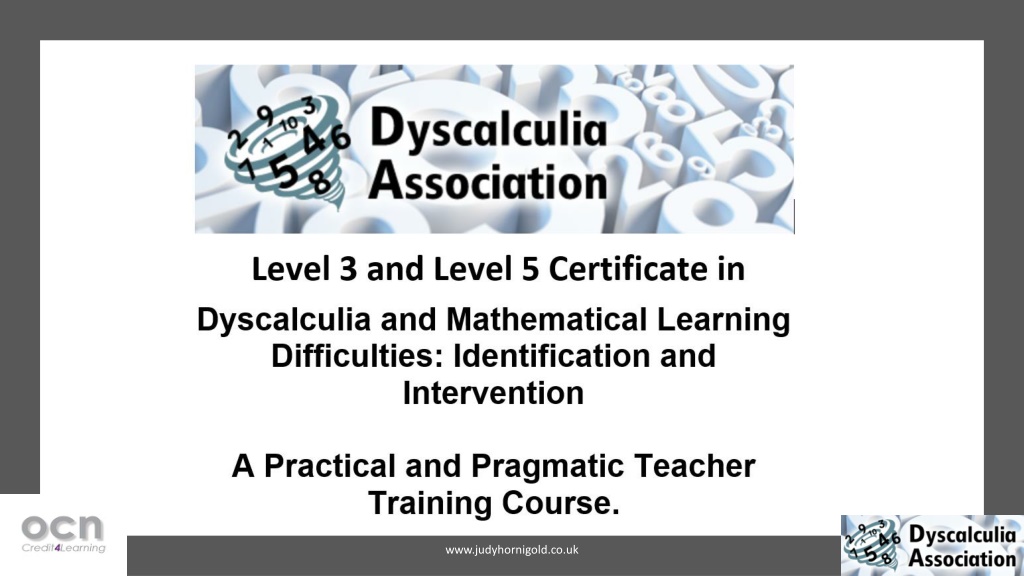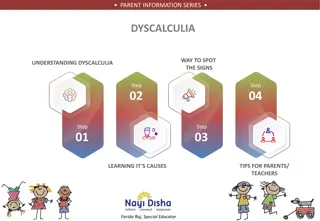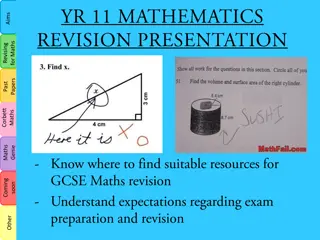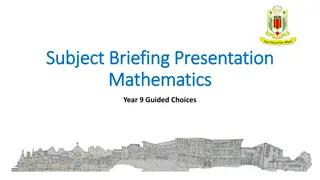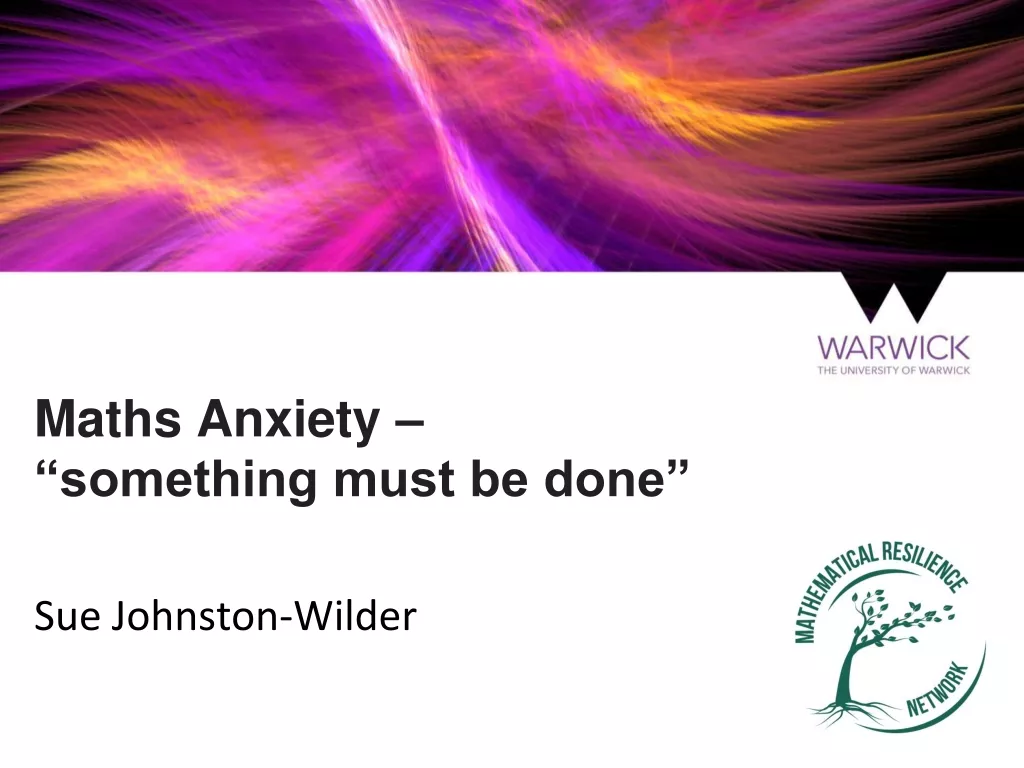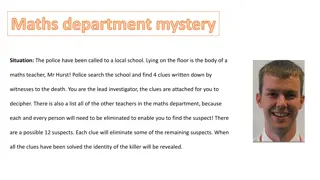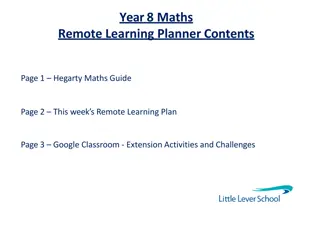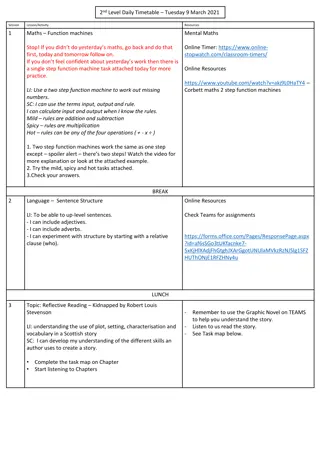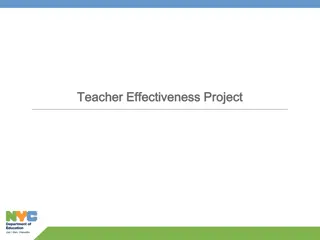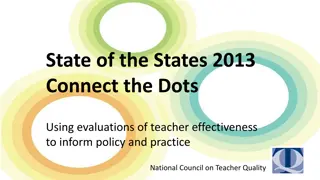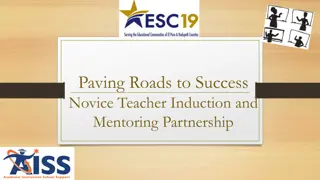Specialist Teacher Training Course in Maths Difficulties and Dyscalculia
Enroll in our Level 5 online course led by experts Judy Hornigold and Prof. Steve Chinn to learn to identify, assess, and support learners with maths difficulties and dyscalculia. Gain practical skills, access recorded sessions, receive tutor support, and benefit from guest speakers and interactive forums. Course completion leads to accreditation as a specialist teacher, enhancing your capabilities in teaching SEN students.
Download Presentation

Please find below an Image/Link to download the presentation.
The content on the website is provided AS IS for your information and personal use only. It may not be sold, licensed, or shared on other websites without obtaining consent from the author. Download presentation by click this link. If you encounter any issues during the download, it is possible that the publisher has removed the file from their server.
E N D
Presentation Transcript
Session 1 Course Introduction www.judyhornigold.co.uk
Prof Steve Chinn PhD FRSA AMBDA stevechinn.co.uk mathsexplained.co.uk Course Leaders Judy Hornigold BSc PGCSpE FHEA AMBDA judyhornigold.co.uk judy@judyhornigold.co.uk
E-learning platform manager Arran Smith
Thank you for enrolling on this course. Our aim for the course is to make it as personal and as practical as possible, enabling you to feel confident in identifying learners with maths difficulties and dyscalculia. On successful completion of the Level 5 course, you will be an accredited specialist teacher in maths difficulties and dyscalculia. Please note that this course does not enable you to diagnose dyscalculia unless you already have Level 7 or equivalent qualifications in diagnosing dyslexia. Welcome
This is an online course. Sessions will be recorded by either Judy or Steve and will be accessible at any time by course participants. Tutor support will be available from Judy. Every month there will be a live support session via Zoom. Progress will be monitored and assessed via a series of practicum assignments. Course Delivery www.judyhornigold.co.uk
Other course features Guest speakers Monthly prize draw Online forum Weekly discussion point Newsletter
Identify, assess and diagnose maths learning difficulties and dyscalculia Know how to implement effective differentiation to lessons for SEN students Course Objectives Understand why there is a need to set an appropriate classroom ethos and how this may be achieved Set up a resource base to aid teaching students with maths difficulties www.judyhornigold.co.uk
Session 1 Introduction to the course Session Overview Part 1- 3 sessions Session 2 (presented by Judy) Mathematical Learning Difficulties and dyscalculia. The learning spectrum. Definitions and descriptions. www.judyhornigold.co.uk
Session 3 (presented by Judy) Building understanding and empathy for learners. Maths anxiety and the affective domain. Self-esteem. Self-concept. Self-efficacy Attributional style Session Overview Part 1- 3 sessions
Session 1 (presented by Judy) The foundations. Developing number sense and operation sense. Place value. Session Overview- Part 2- 7 sessions Session2 (presented by Steve) Strategies for accessing (and understanding) the basic addition and subtraction facts.
Session 3 (presented by Steve) How maths develops. From the basics to algebra. Fractions, decimals, percentages. Session 4 (presented by Judy) Singapore Maths Session 5 ( presented by Judy) Manipulatives. Session 6 (presented by Judy) Bar Modelling and Word Problems
Session 7 (presented by Steve) Theories of learning. Professor Sharma-components of a mathematical idea and six levels of learning. Multiplication facts. Rote learning and alternative strategies. An introduction to developmental teaching. 'Long' multiplication and division, traditional and non-traditional methods.
Part 3 (3 sessions) Level 5 only Diagnosis and Assessment Session1 (presented by Steve) Setting up a test protocol: 1. Informal clinical diagnostic procedure. 2. Tests of basic facts. 3. A 15-minute standardised maths test. Standardised and criterion referenced tests. 4. A maths anxiety questionnaire 5. Short term memory. Working memory. 6. Cognitive style in maths. 7. A dyscalculia checklist Session Overview- Part 3 3 sessions
Session 2 (presented by Steve ) Error patterns. Session Overview- Part 3 3 sessions Session 3 (presented by Judy) Lesson planning
A portfolio of teaching practice with reflective comments including teaching resources, materials and differentiated worksheets. 10 hours of evaluated specialist teaching Practicum for Level 5 A minimum of one hour of teaching /learning support to be observed and assessed by the Dyscalculia Association Completion of a series of practicum tasks www.judyhornigold.co.uk
To be completed after studying all three sessions of Part 1 of the course. Select one factor, such as poor short term memory or maths anxiety that has a negative influence on learning maths and describe three examples you have experienced of this with learners, what intervention(s) you tried and appraise the outcome. (Suggested word count 500-1000 words) Practicum Practicum Activity 1 Activity 1
To be completed after studying sessions 1 and 2 of Part 2 of the course. Discuss the impact of poor retrieval of basic facts, including slow retrieval and inaccurate recall. Provide data on the extent of this issue for your students. If possible, explore this for a range of ages and explain the impact of these issues at different stages in learning maths. Practicum Practicum Activity 2 Activity 2 (Suggested word count 500 1000 words)
To be completed after studying sessions 3 and 4 of Part 2 of the course. Discuss the principles behind the Singapore approach and how they may support learners with maths difficulties or dyscalculia. Practicum Practicum Activity 3 Activity 3 (Suggested word count 500 1000 words)
To be completed after studying session 7 of Part 2 of the course. Discuss Mahesh Sharma s three key components of mathematics and the six levels of knowing: (Suggested word count 500 -1000 words) Practicum Practicum Activity 4 Activity 4
To be completed after studying Part 3 of the course Practicum Practicum Activity Activity 5:Level 5 only 5:Level 5 only Explain how dyslexia, dyspraxia and ADHD can impact on the learning of maths and thus dyscalculia. (Suggested word count 500 -1000 words)
To be completed after studying all three parts of the course and after delivering 10 lessons. 1)Submission of 10 annotated and evaluated lesson plans. (no maximum word count) 2)Essay: (Suggested word count 2000 words) Final Final Assignment Assignment Level 5 only Level 5 only
The essay should be critical evaluation of and reflection on the lessons that you have delivered. Covering the following: The nature of dyscalculia and general maths difficulties, referencing this to current research where appropriate. Why you chose the learner that you have worked with and what difficulties in Maths they are displaying. The rationale behind your intervention and lesson structure/content. Essay Reflection on how successful you feel the intervention has been. Is there anything that you would have changed - what worked well and what didn t work? How has the course impacted on your teaching practice and what will be your next steps on terms of working with learners with maths difficulties and dyscalculia.
Before you go on Before you go on to Session 2 to Session 2 Dyscalculia: True or False? Try our myth busting Quiz.
